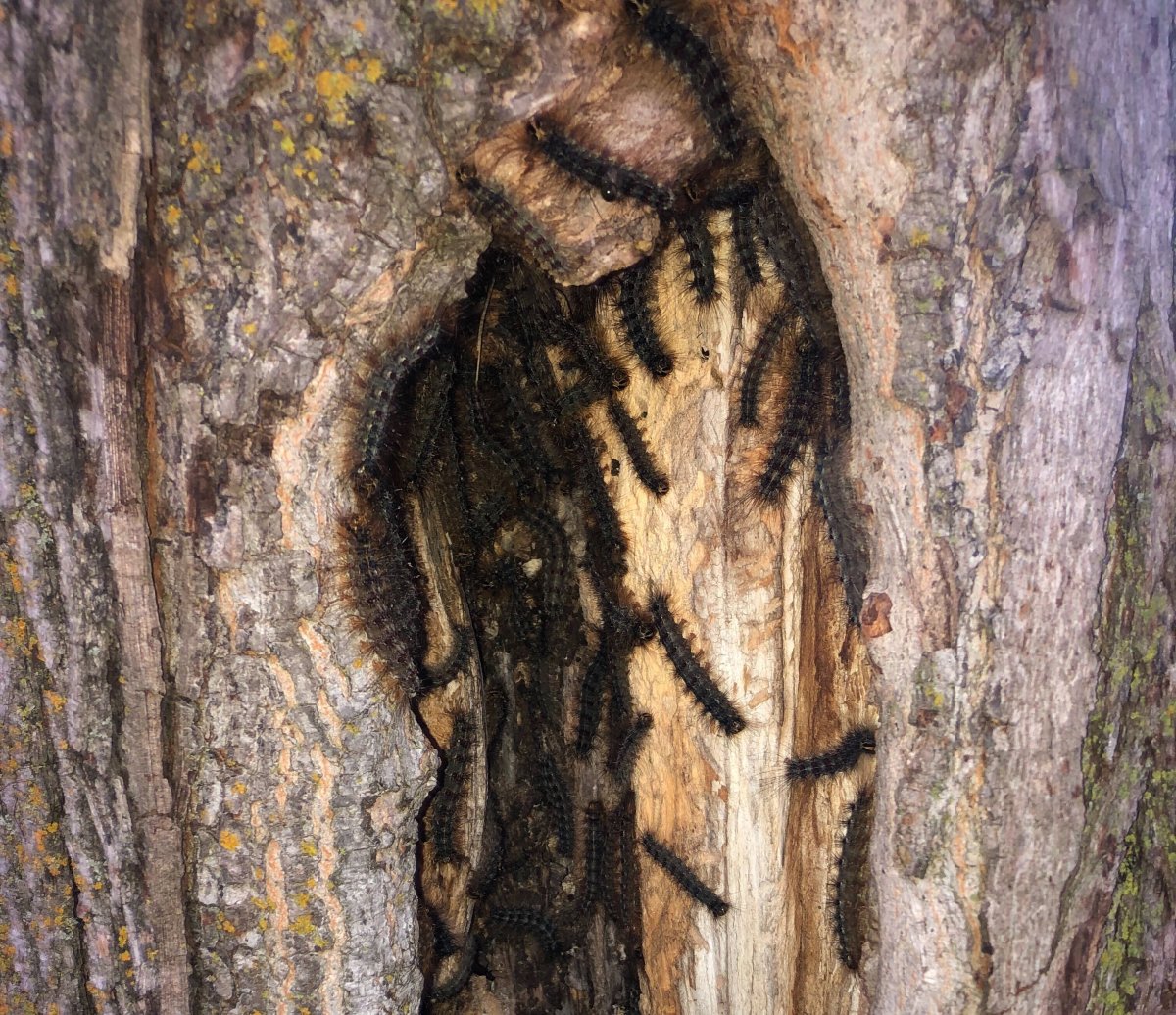Some rural Hamilton residents are frustrated with what they see as a lack of support from the city to control gypsy moth infestations.

Glanbrook Coun. Brenda Johnson outlined their ordeal during the latest meeting of city council, saying her ward is being “inundated” by gypsy moth caterpillars, which cover and eventually defoliate and kill entire trees.
“This is really detrimental out where we are, right now,” Johnson said. “It’s becoming almost epidemic.”
Johnson added that the caterpillars, which are dropping into people’s backyards, are leaving parents worried that “their kids are going to be itching with rashes.”
“When it lands on you, it is immediate, there are huge hives, welts,” said Flamborough Coun. Judi Partridge. “If you’re walking under a tree, you will have probably about 30 of them land of you, just like that.”
The red or white bumps that appear on the skin after coming into contact with the caterpillars usually disappear within hours, but can last up to two weeks.
While not serious, medical officials agree that they can cause annoying itchiness, similar to poison ivy, and can be treated with over-the-counter pain relievers such as ibuprofen or acetaminophen.
Sam Scarlett, Hamilton’s manager of forestry and horticulture, said that in 2018 and 2019, the city conducted aerial spraying of 2,600 hectares of city-owned naturalized areas and woodlots to control gypsy moth populations.
Scarlett told councillors that this year’s program has focused on ground spraying in select locations, as well as scraping and banding of trees.
He encouraged residents to band trees on their private properties, as well, calling it “very effective” as a control measure.
“We put the burlap around the trunk of the tree and it stops the caterpillars climbing up,” Scarlett said. “We have really been pushing that message on our city website.”
In terms of infestations, he said the weather conditions that we’d had over the past couple of weeks have “really increased the growth and hatch rate.”
- Invasive strep: ‘Don’t wait’ to seek care, N.S. woman warns on long road to recovery
- Ontario First Nation declares state of emergency amid skyrocketing benzene levels
- T. Rex an intelligent tool-user and culture-builder? Not so fast, says new U of A research
- Nearly 200 fossil fuel, chemical lobbyists to join plastic treaty talks in Ottawa
Scarlett also said monitoring and reports of infestations will inform next year’s control program, adding that aerial spraying requires permits and procurements and is a process that requires several months of planning.
The City of Burlington has carried out limited spraying this week at four parks, spraying a bio-pesticide over LaSalle Park, City View Park, Zimmerman Park and Kilbride Park.
Royal Botanical Gardens (RBG) is also conducting targeted spraying at Rock Chapel and along the south shore of Cootes Paradise.
“My ward shares the border with Burlington,” Coun. Partridge said. “When Burlington sprays or Conservation Halton sprays and we don’t, residents get very upset.”
Glanbrook resident Bev Groombridge is among those voicing such frustration and complaining of a “lack of initiative on the part of city council to deal with the gypsy moth infestation.”
She lives in a wooded area and said that “during the last infestation, our area was sprayed by plane which ended the infestation.”
“It was suggested that we treat our trees by wrapping them in burlap,” Groombridge added. “If I had one or even 10 trees, I would certainly attempt this. But not 12 acres.”








Comments